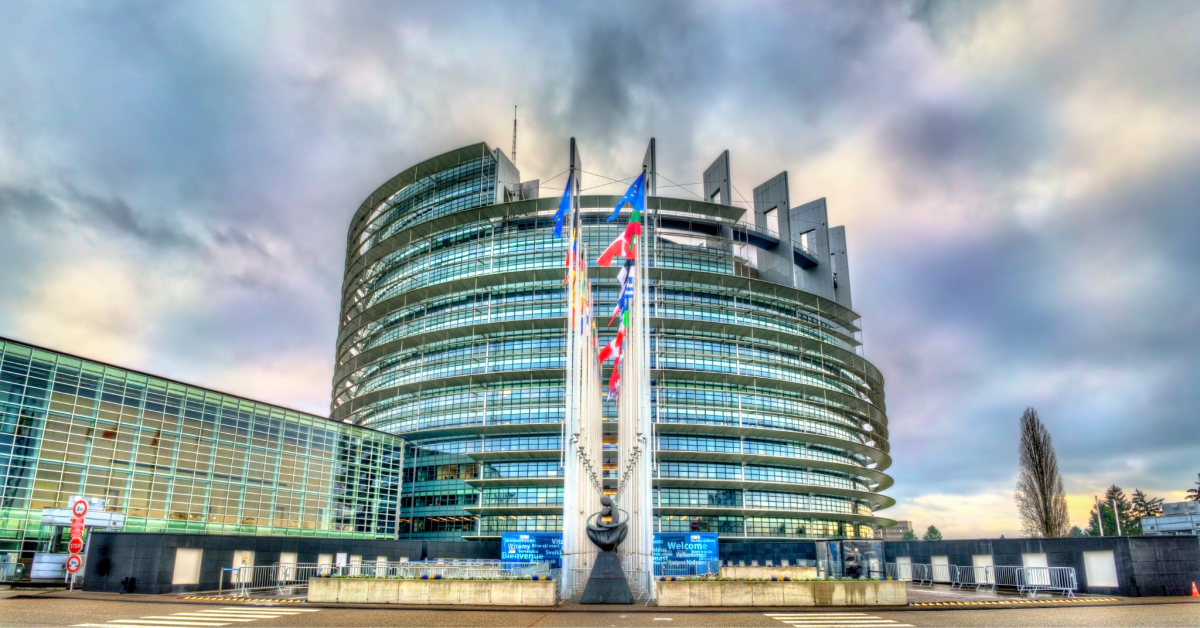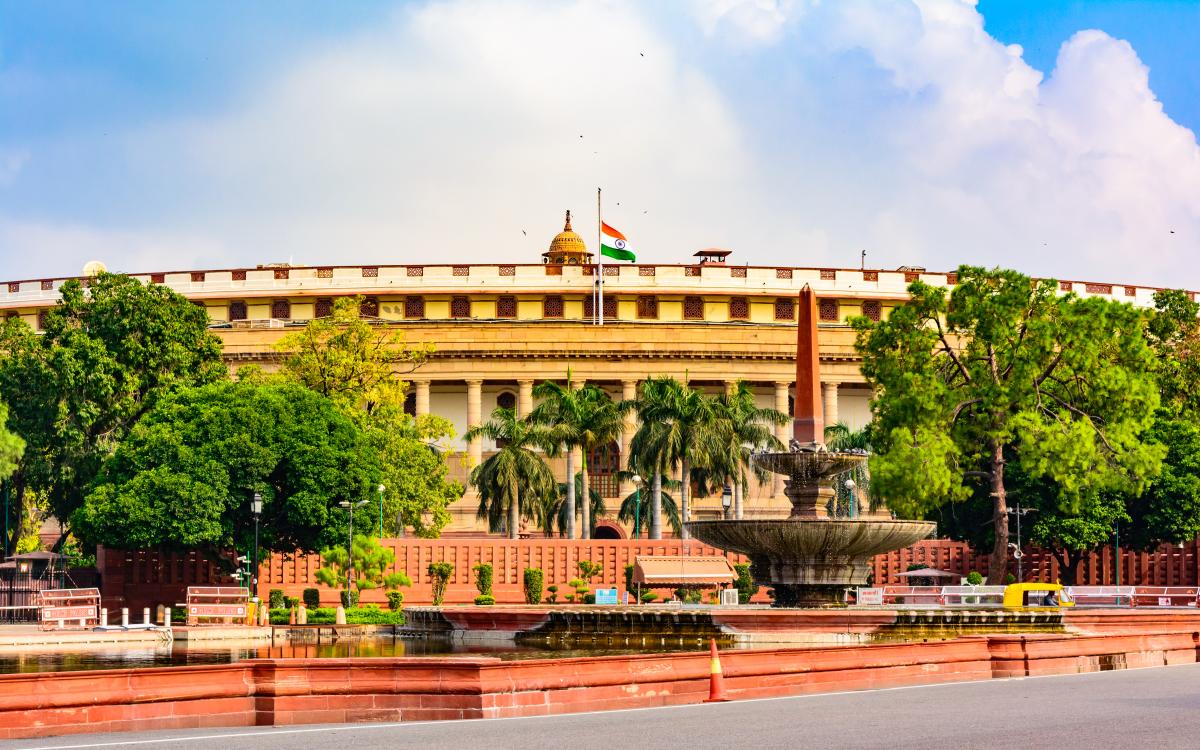The Conservative Manifesto: More of the Same?
At a Glance
UK Prime Minister Rishi Sunak launched the Conservative Party’s election manifesto at Silverstone this morning, hoping to reset Tory fortunes following the damage caused by his early departure from the D-Day commemorations.
Despite a difficult start to the campaign, the manifesto shows no signs of a change in strategy—the Party will continue to fight the election on the economy, immigration, and culture war issues.
The main dividing line with the Labour Party was on tax, with a number of measures being outlined to reduce the tax burden in the long run—following a days-long narrative from the Prime Minister that a Labour government would mean higher taxes.
What's in the manifesto?
As trailed in the media over the weekend, the headline policies include a further two percentage point (2p) cut in National Insurance. Following two reductions in the tax this year, this latest move allowed Sunak to say the Conservatives will have halved National Insurance from 12% at the start of 2024 to 6% by April 2027. The manifesto also states the Conservatives will abolish the main rate of self-employed National Insurance "entirely" by the next Parliament, in a promise to “support the self-employed.”. Furthermore, in an appeal to younger voters, Sunak announced the Tories would abolish stamp duty for first-time buyers on properties valued up to GBP 425,000. Overall, the manifesto promises a total of GBP 17 billion in tax reductions, paid for by cuts to the benefits bill, the Civil Service, savings on consultants, and tackling tax evasion.
Other eye-catching pledges include a two-year temporary Capital Gains Tax relief for landlords who sell to their existing tenants,; a sweetening of the pensions Triple Lock, and pledges on childcare and child benefit reform. As expected, the manifesto also promises a “regular rhythm of flights every month” to Rwanda “until the boats are stopped” if the Conservatives form the next government. Conveniently, the document states the so-called regular rhythm of deportation flights will begin “from July” (after polling day).
Despite a difficult start to the campaign, the Conservative manifesto shows no signs of a change in strategy—the Party will continue to fight the election on the economy, immigration, and culture war issues. Ultimately, there were no great surprises. In his launch speech, Rishi Sunak characteristically pitted the Tory offer to voters against Sir Keir Starmer’s lack of policy detail, accusing Labour of wanting to “take more of your money because they think it belongs to them.”
As always with these announcements, the devil will be in the detail. While the purpose of an election manifesto is to demonstrate your vision to the public, the evidence suggests Sunak still has an uphill battle to convince his own party of the merits of his brand of Conservatism.
Is this “bold action” and a “clear plan”?
This manifesto is, by most accounts, rather underwhelming. It’s immediately striking just how many policies it pledges to keep in place. Time and again, the Conservatives promise to “continue” or “complete” policies—which were mostly begun before Rishi Sunak was even Prime Minister.
This morning, ahead of the launch, there was speculation that if the manifesto didn’t go down well, a group of right-wing Conservatives might launch their own “rebel manifesto.” With papers reporting that one option under discussion was a press conference next week to launch their own alternative pledges, Sunak knew he had to deliver. Since he took control of the Party, Sunak’s Conservatives have dangled the prospect of several policies which would have thrown a bone to the Tory right, but ultimately, many did not make the final cut.
One example here is the European Convention on Human Rights, which many on the right of the Party have been calling for the UK to leave. Although there is a passing reference to the European Court of Human Rights, the manifesto—contrary to expectations—does not set out how the Conservatives would seek to reform our relationship with these institutions. In the same way, reforms to (or even the abolition of) inheritance tax had also been anticipated—but there’s no mention of the subject in the manifesto. The disillusioned right of the Party is unlikely to find much succor in the pledges to protect statues or reform the Equality Act’s provisions on biological sex.
It’s now something of a waiting game for the Prime Minister as rebels weigh up their options and decide whether to directly challenge his offer to the electorate.
A Cabinet Minister told EGA this afternoon that the manifesto “feels fitting for the position that Rishi is now in; he’s been pulled in all directions by people serving their own interests.” This is a helpful metaphor, perhaps, for the document itself—it’s hard to work out who exactly it’s aimed at or what it seeks to solve. A General Election manifesto is, admittedly, a hard task for a party that’s been in power for 14 years—it won’t want to admit that many problems in the country are in fact a result of its own maladministration.
In conversation about the manifesto with EGA, a Special Adviser simply remarked, “What kind of government would we be if we somehow won the election and had to deliver this? I have no idea.”
Will it change the Conservatives’ electoral prospects?
Senior advisors in Downing Street tell EGA that there was an acceptance in the months leading up to the election being called that the public had simply stopped listening. No matter what the announcement, the polls remained firm. Perhaps more out of hope than expectation, there was a belief that this reality might change once the election period formally began. It begs the question: If the party faithful have lost hope, what hope is there for the Prime Minister to turn the tide with the general public?
The Conservatives have made a series of eye-catching policy announcements since the start of the campaign. Whilst policies like the reintroduction of national service, bolstering the triple lock on the state pension, and the proposed new cap on migration have all individually polled well with the demographic of voters the Conservatives are targeting, they have all failed to improve the Party’s electoral prospects.
Manifesto launches are always significant moments in campaigns, but the jury is out as to how significant an impact they actually have on the end result. New announcements in today’s manifesto, such as a further 2p cut to National Insurance and the recruitment of 8,000 more police officers, will all poll well, but there is little reason to believe they will move the political dial any more than the announcements earlier in the campaign will.
When speaking with Conservative Campaign Headquarters (CCHQ) insiders prior to the launch of the manifesto, the message EGA received was clear: The electorate has already largely made up its mind that this is a “change election” and there was nothing the Conservatives could have put in their manifesto that would alter this reality. Therefore, the focus instead is on limiting the scale of any defeat and convincing enough voters who are considering voting Reform or staying at home to stick with the Conservatives.
By this metric, the manifesto may well work. The question remains, however, whether a deeply divided Conservative Party remains united enough to effectively land these key messages with its support base. With the rumors of a so-called “Rebel Manifesto” gaining momentum, the chances of that appear slim.
Appendix: Key policies
- Give everyone a new right to see a GP within seven days, or 24 hours if it’s urgent, with the extra doctors needed to make it happen.
- Introduce free personal care for elderly and disabled adults and overhaul the “broken” Carer’s Allowance system to make sure unpaid family carers also receive support.
- Take a further 2p off employee National Insurance, and abolish the main rate of self-employed National Insurance entirely by the end of the Parliament
- Cut tax for pensioners with the new “Triple Lock Plus,” guaranteeing that both the State Pension and the tax free allowance for pensioners always rise with the highest of inflation, earnings or 2.5%
- Introduce mandatory National Service for all school leavers at 18, with the choice between a competitive placement in the military or civic service roles
- Fund 100,000 high-quality apprenticeships for young people
- Boost defense spending to 2.5% of GDP by 2030
- Introduce a legal cap on migration to guarantee that numbers fall every year
- Protect female-only spaces and competitiveness in sport by making clear that sex means biological sex in the Equality Act.
- Build 1.6 million homes while protecting our countryside; permanently abolish Stamp Duty for homes up to GBP 425,000 for first time buyers; and introduce a new Help to Buy scheme.
- Recruit 8,000 more full-time, fully-warranted police officers to ensure a new police officer for every neighborhood
- Invest GBP 36 billion in local roads, rail, and buses to drive regional growth, including GBP 8.3 billion to fill potholes and resurface roads, funded by cancelling the second phase of HS2.
Materials presented by Edelman Global Advisory London. For additional information, reach out to Mohammed.Hussein@EdelmanEGA.com
For more on global elections in 2024, the EGA Election HQ is your guide to the moments that matter, what comes next, and what all of this means for industries and sectors. Sign up here to receive global election updates from the EGA Election HQ team. For counsel or to get in touch, reach out at: Elections@edelmanEGA.com.



